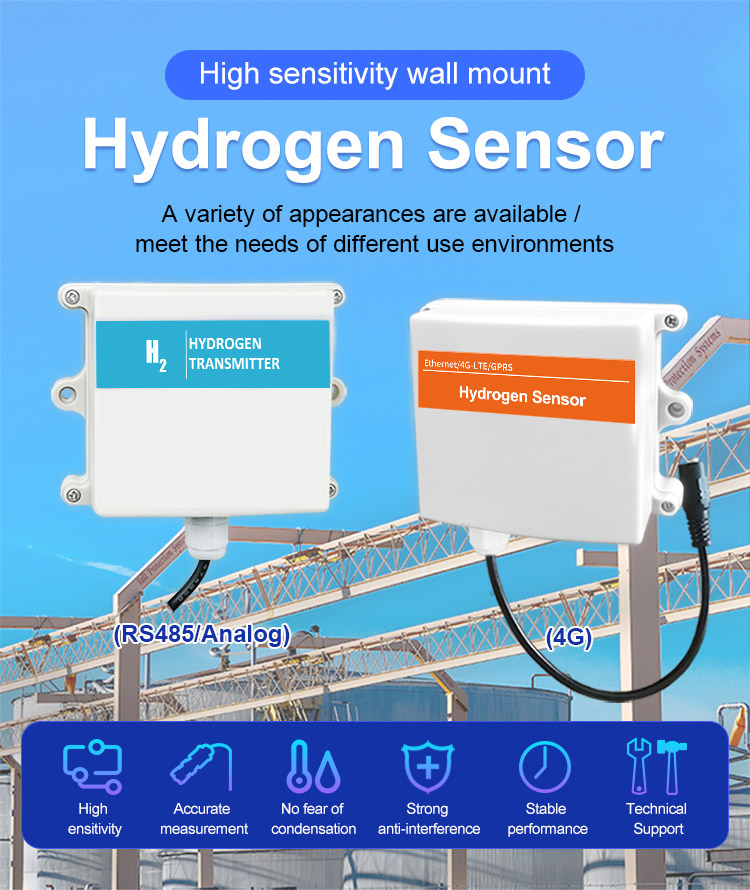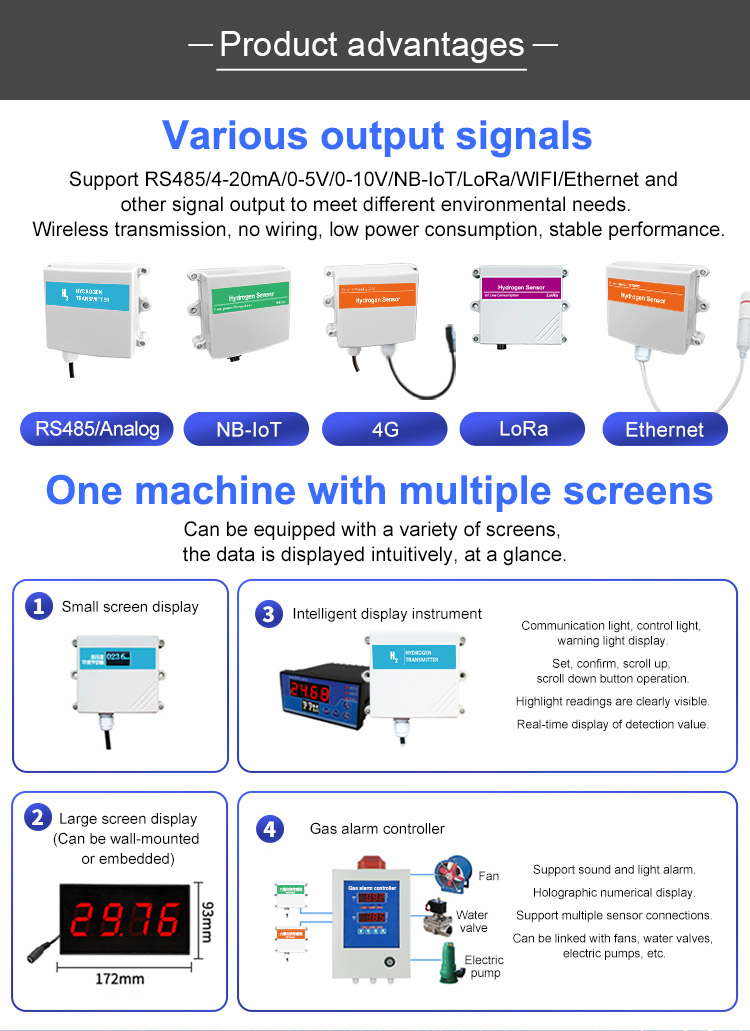H2 detector, also known as hydrogen gas detectors, are crucial devices used in various industries to ensure safety and prevent hazardous situations. These detectors are designed to detect the presence of hydrogen gas, a highly flammable substance that poses significant risks if not properly monitored.

Working Principle
H2 detector operate based on different sensing technologies, including catalytic bead, thermal conductivity, and metal oxide semiconductor (MOS) sensors.
Catalytic bead sensors utilize a heated wire coil coated with a catalyst that reacts with hydrogen gas. When hydrogen comes into contact with the catalytic head, it undergoes a chemical reaction. The detector measures the change and triggers an alarm when the hydrogen concentration exceeds a threshold.
The role of a thermal conductivity sensor is to measure the difference in heat transfer between air and hydrogen. Since, hydrogen is more conductive than air, hydrogen changes the thermal conductivity of the surrounding gas mixture. The detector measures this difference and activates an alarm if the hydrogen concentration surpasses the predetermined level.
Metal oxide semiconductor (MOS) sensors rely on a thin film of metal oxide that reacts with hydrogen gas. The contact between hydrogen and the metal oxide causes a change in the electrical conductivity of the sensor. The detector monitors this change and triggers an alert when the hydrogen gas concentration reaches or exceeds the set threshold.
Importance in Industrial Safety
H2 detectors providing warning dangerous situations
Hydrogen gas is highly flammable, and its accumulation in confined spaces can lead to explosions or fires. The presence of H2 detectors in industrial settings helps ensure prompt detection of hydrogen gas, enabling immediate action to mitigate risks.
Hydrogen detectors are essential in industries that use or produce hydrogen. They continuously monitor the amount of hydrogen in the air and alert staff if the gas concentration exceeds safe levels. This early warning system allows for the implementation of appropriate safety measures.

H2 detectors contribute to the protection of workers’ health
Prolonged exposure to hydrogen gas can cause respiratory issues, dizziness, and other health problems. By detecting hydrogen leaks in a timely manner, harmful gases do not come into contact with workers, reducing the risk of health complications.
H2 detectors are vital in environmental pollution
Hydrogen gas leaks can result in explosions and fires, leading to significant damage to buildings, equipment, and infrastructure. By alerting operators to potential leaks, the H2 detector can intervene in a timely manner, minimizing costly problems. Additionally, detecting and controlling hydrogen gas releases helps prevent environmental contamination and the associated negative impacts on ecosystems.
Conclusion
Hydrogen detectors are invaluable equipment in industrial environments that can provide hydrogen leak detection and prevent dangerous situations. By continuously monitoring the air quality of hydrogen, these detectors contribute to the safety and well-being of workers. Incorporating H2 detectors as part of industrial safety protocols ensures compliance with regulations and fosters a culture of safety consciousness.